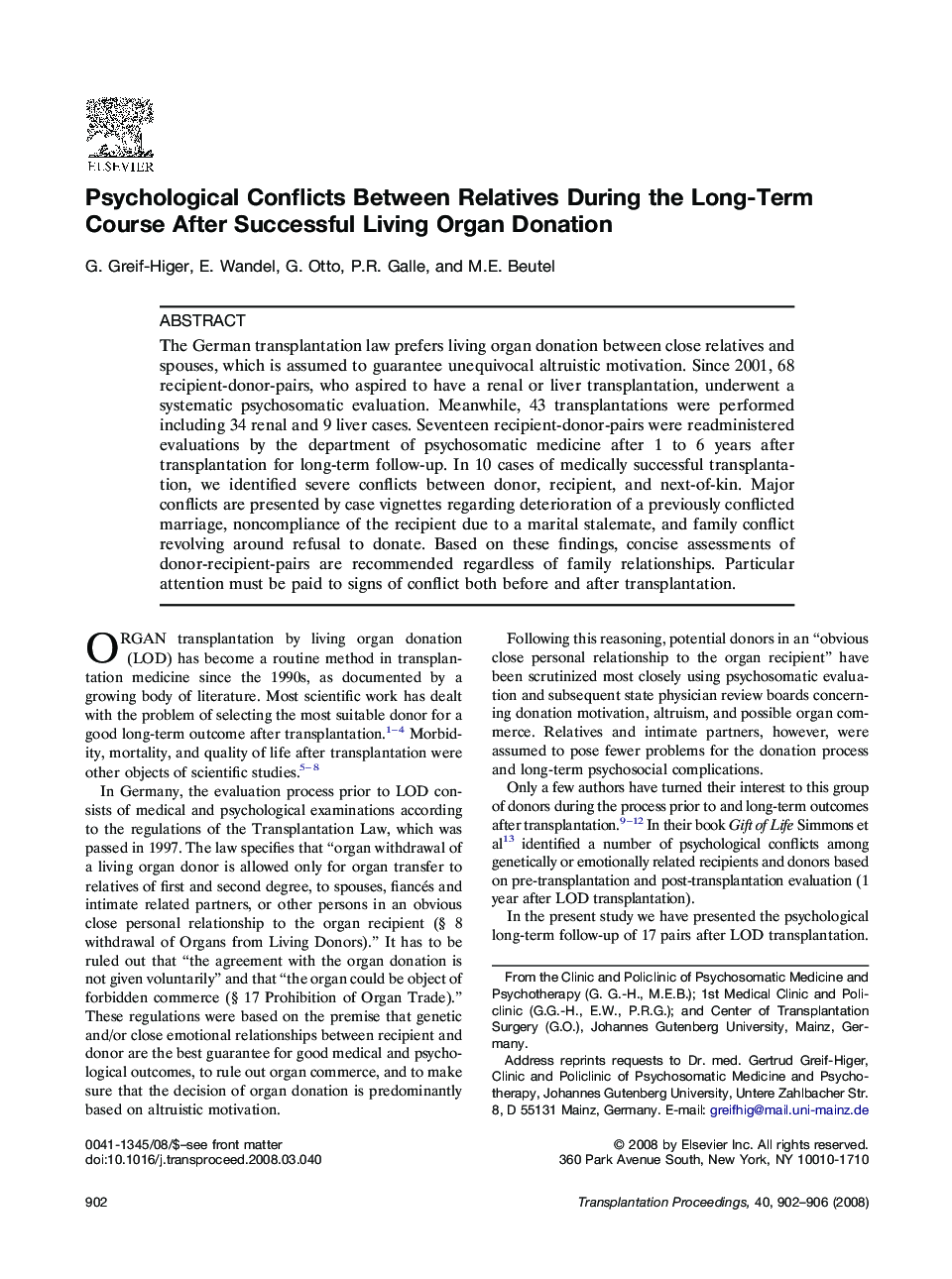| Article ID | Journal | Published Year | Pages | File Type |
|---|---|---|---|---|
| 4262067 | Transplantation Proceedings | 2008 | 5 Pages |
The German transplantation law prefers living organ donation between close relatives and spouses, which is assumed to guarantee unequivocal altruistic motivation. Since 2001, 68 recipient-donor-pairs, who aspired to have a renal or liver transplantation, underwent a systematic psychosomatic evaluation. Meanwhile, 43 transplantations were performed including 34 renal and 9 liver cases. Seventeen recipient-donor-pairs were readministered evaluations by the department of psychosomatic medicine after 1 to 6 years after transplantation for long-term follow-up. In 10 cases of medically successful transplantation, we identified severe conflicts between donor, recipient, and next-of-kin. Major conflicts are presented by case vignettes regarding deterioration of a previously conflicted marriage, noncompliance of the recipient due to a marital stalemate, and family conflict revolving around refusal to donate. Based on these findings, concise assessments of donor-recipient-pairs are recommended regardless of family relationships. Particular attention must be paid to signs of conflict both before and after transplantation.
